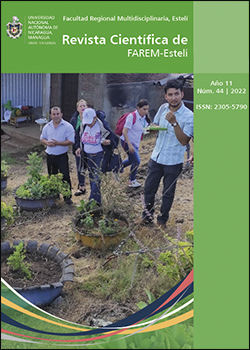The evaluation of educational competencies in seven Latin American higher education universities
DOI:
https://doi.org/10.5377/farem.v11i44.15685Keywords:
Assessment, competency, learning, higher educationAbstract
European universities began a process of reform, which implied assuming a competency-based curriculum, which is why the “Tuning” project was born in Europe. Later, the approaches of the project were accepted by Latin American universities, which agreed to work on common points of reference adapted to the region and the “Tuning Latin America” Project was born as an intercontinental idea. This study was aimed at describing the different learning evaluation processes of the competency-based curriculum implemented by seven Latin American universities from Chile, Colombia, Peru, Honduras, Mexico and Nicaragua. The research is located within the qualitative paradigm and is documentary in nature. For a better understanding of educational competencies, the documentary analysis examined the definition, characteristics, types and aspects of competency evaluation. Among the results, it shows the evaluation of competencies with greater emphasis, as a timely feedback to students in their performance, followed by the evaluation of learning, which favors analysis and reflection, through the use of the results of the evaluation. Finally, it reflects the learning outcomes, as verifiable statements that a student knows, understands and is able to do at the end of a learning process.
Downloads
229
HTML (Español (España)) 83
Published
How to Cite
Issue
Section
License
Copyright (c) 2023 Revista Científica de la FAREM-Estelí

This work is licensed under a Creative Commons Attribution-NonCommercial-ShareAlike 4.0 International License.
© Revista Científica de FAREM-Estelí

